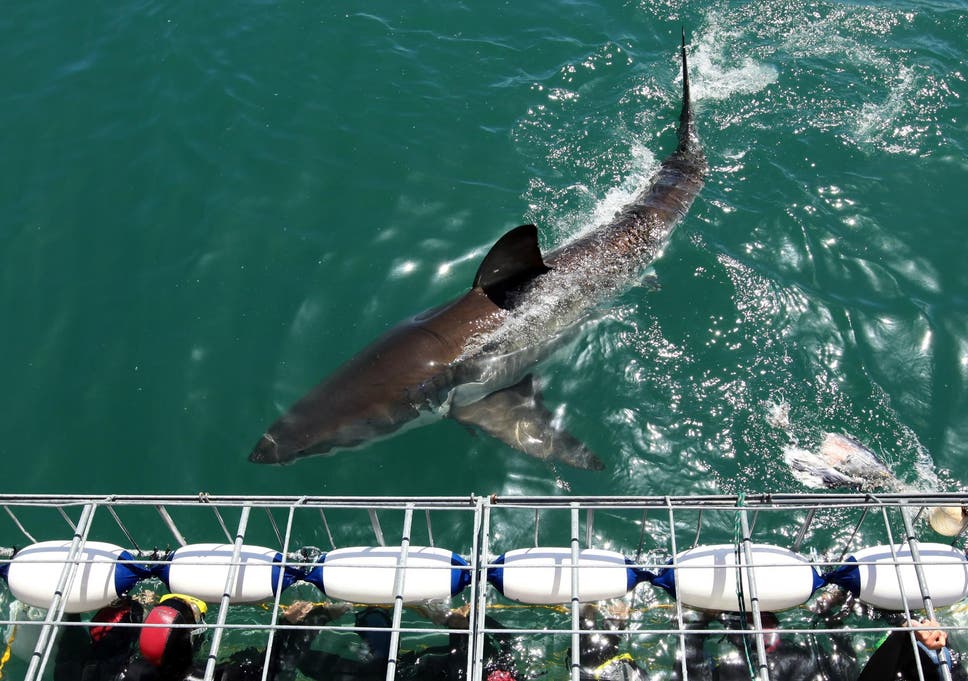https://www.independent.co.uk/environment/great-white-shark-cage-diving-ecotourism-mexico-australia-neptune-islands-a8386671.html
Cage diving tourists putting vulnerable great white sharks at risk, scientists say
Tour operators distract sharks, costing them valuable energy, research suggests
The chance to go diving and safely see some of the world’s most spectacular and bloodthirsty predators up close in their own environment is regarded as the opportunity of a lifetime for many holidaymakers.
Consequently, cage diving and other forms of wildlife tourism have seen a boom in recent decades and are now one of the fastest growing sectors of the tourism industry.
But new research suggests cage diving with great white sharks is altering these predators’ behaviour, diverting them from hunting, and making them needlessly waste energy.
It is possible to go cage diving with great white sharks in Australia, South Africa, the US, Mexico and New Zealand – and some of these places have as many as seven different tour operators working in the same locations.
A study published in the journal Conservation Physiology reveals that great white shark (also known as white sharks) activity increases dramatically during cage diving sessions, compared to when tour operators are absent, raising questions about the behavioural changes this form of tourism may be causing in some species.
The researchers tracked ten white sharks at South Australia's Neptune Islands with devices for nine days. They found the increased movement when sharks are interacting with cage divers results in overall dynamic body acceleration 61% higher than at times when sharks are present in the area but cage divers are not.
According to the team, acceleration is considered a proxy of metabolic rate. Therefore the sharks’ interactions with the cage divers is likely to cost them a lot more energy than standard white shark behaviours, the researchers said.
"This suggests that the cage diving industry has the potential to affect the energy budget of white sharks," said Charlie Huveneers, associate professor at Flinders University and the study's lead researcher.
“However, the mere presence of the cage diving operators in the general vicinity of the sharks was not sufficient to elicit such behavioural changes. These only occurred when white sharks were close to the cage diving vessels.”
“Spending time interacting with cage diving operators might distract sharks from normal behaviours such as foraging on natural, energy-rich prey like pinnipeds (which is a group including seals and sea lions),” Huveneers added.
The research notes that licenced commercial white shark cage diving operators use approved and regulated attractants to entice sharks within close proximity of the cages and provide good viewing opportunities for divers.
But in contrast to many other shark-related tourism activities, operators are not allowed to feed white sharks. The interaction with cage diving tourists is, therefore, not rewarded by more food. This means the increased energy expenditure from interacting with cage divers is not be compensated by either bait or natural prey consumption.
The authors are now calling for greater understanding of the frequency of shark-tourism interactions to appreciate the impact of ecotourism on this species’ fitness.
Great white sharks are listed by the International Union for the Conservation of Nature as a vulnerable species. They are protected by national governments in the US, New Zealand and Australia.
The paper, Interacting with wildlife tourism increases activity levels of white sharks, will be published by the Oxford University Press.

沒有留言:
張貼留言